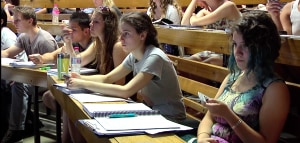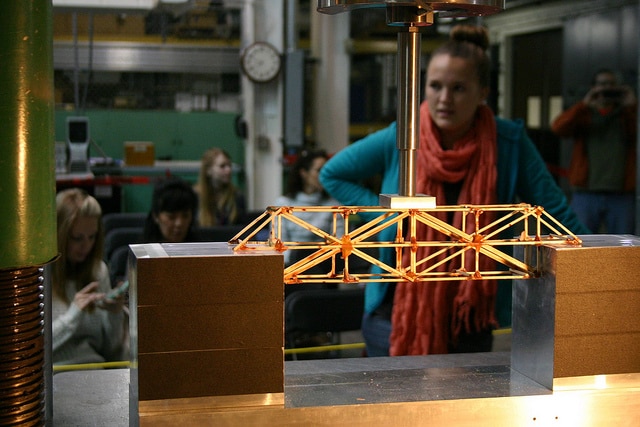In idea 19, Graham Gibbs revisits the issue of ‘class sizes’ in universities arguing that cohort size is strongly negatively correlated with student performance. In ‘Class size matters‘, he argues that social processes start breaking down in large classes leading to effects such as anti-social behaviour at the back of lecture theatres. Learning and retention are improved by social learning processes which can be are harder to ensure when enrolments are high.

Ensuring that large classes are successful requires re-thinking of the teaching approaches – what works for a small class may not for a large class. Alongside allocating greater funding to developing tailored resources for the large class, the virtues of having a having a greater number of students can be harnessed. Response and voting systems can be deployed to gather and give feedback. Polling students on issues regularly and using a discussion forum can ensure that the class size is used to maintain the social cohesion.
Graham Gibbs is one of the UKs most well known advocates of improving university learning and teaching. With his colleagues (Habeshaw & Habeshaw), he was responsible for the very popular ’53 Interesting Ideas’ books series that have supported countless teachers (new and experienced) navigate their way through tricky classroom and curriculum dilemmas. Gibbs’ blog 53 Powerful Ideas all Teachers Should Know About offers a research summary of key issues, and is hosted by the Staff and Educational Development Association (SEDA) in the UK.





